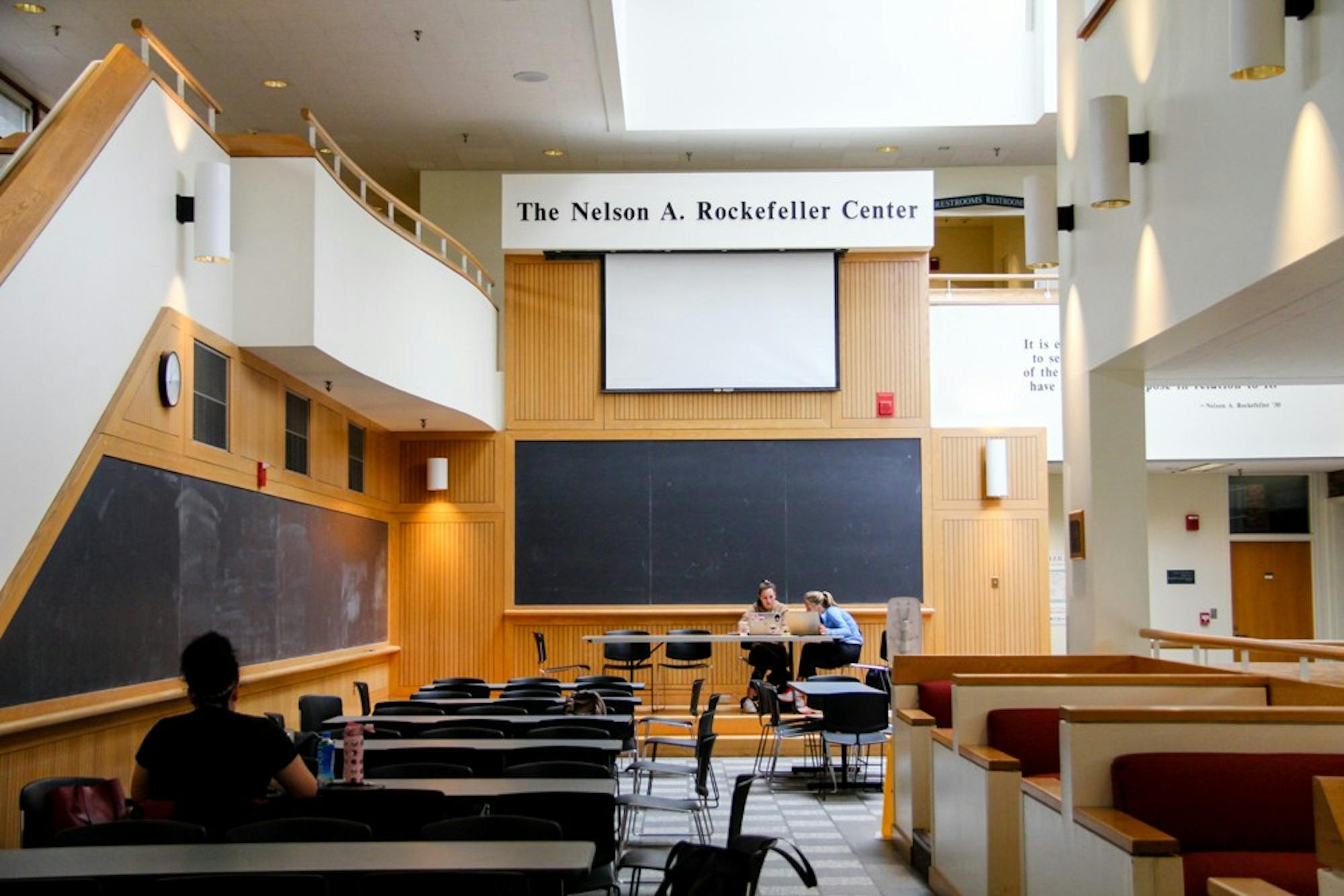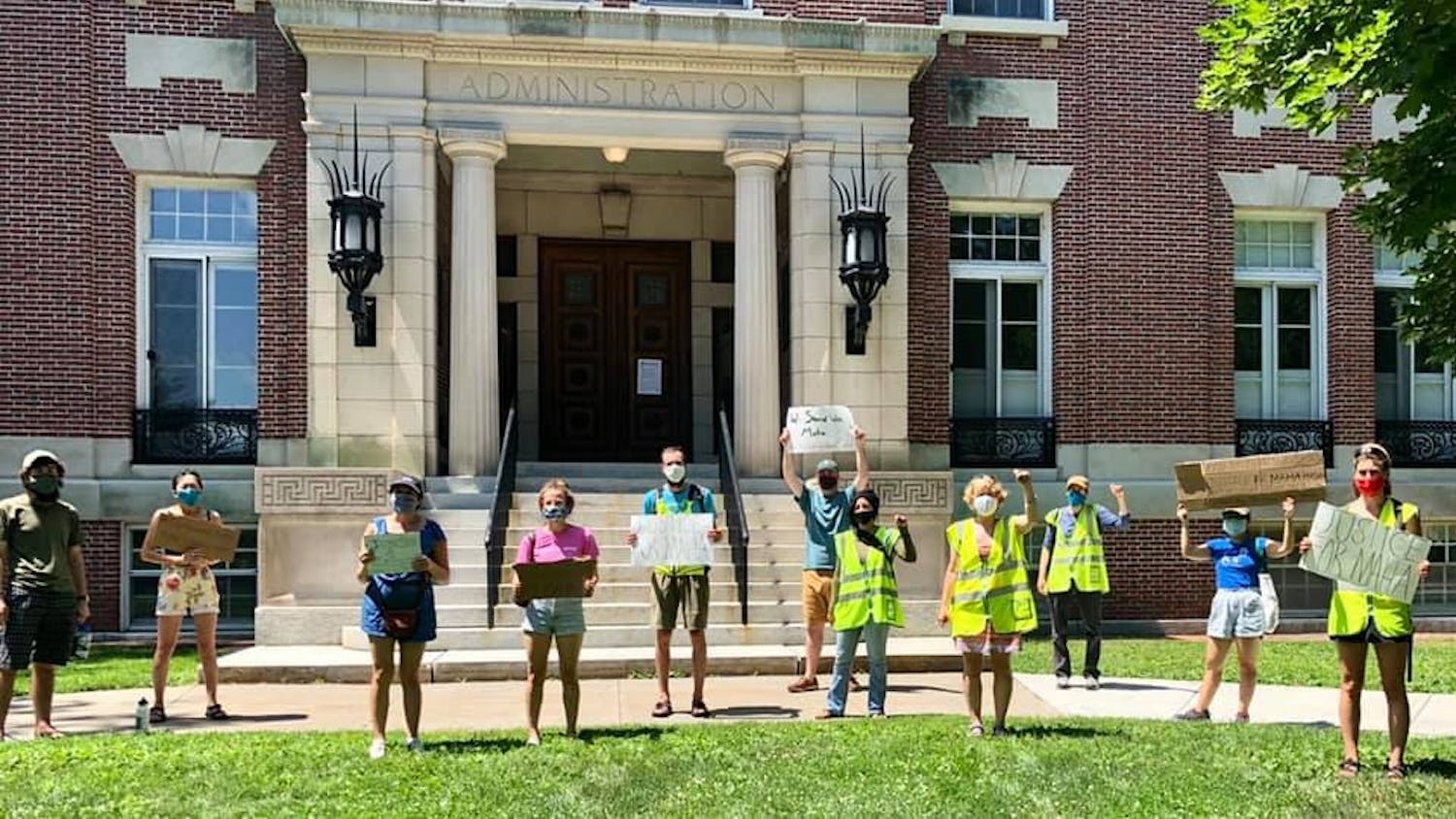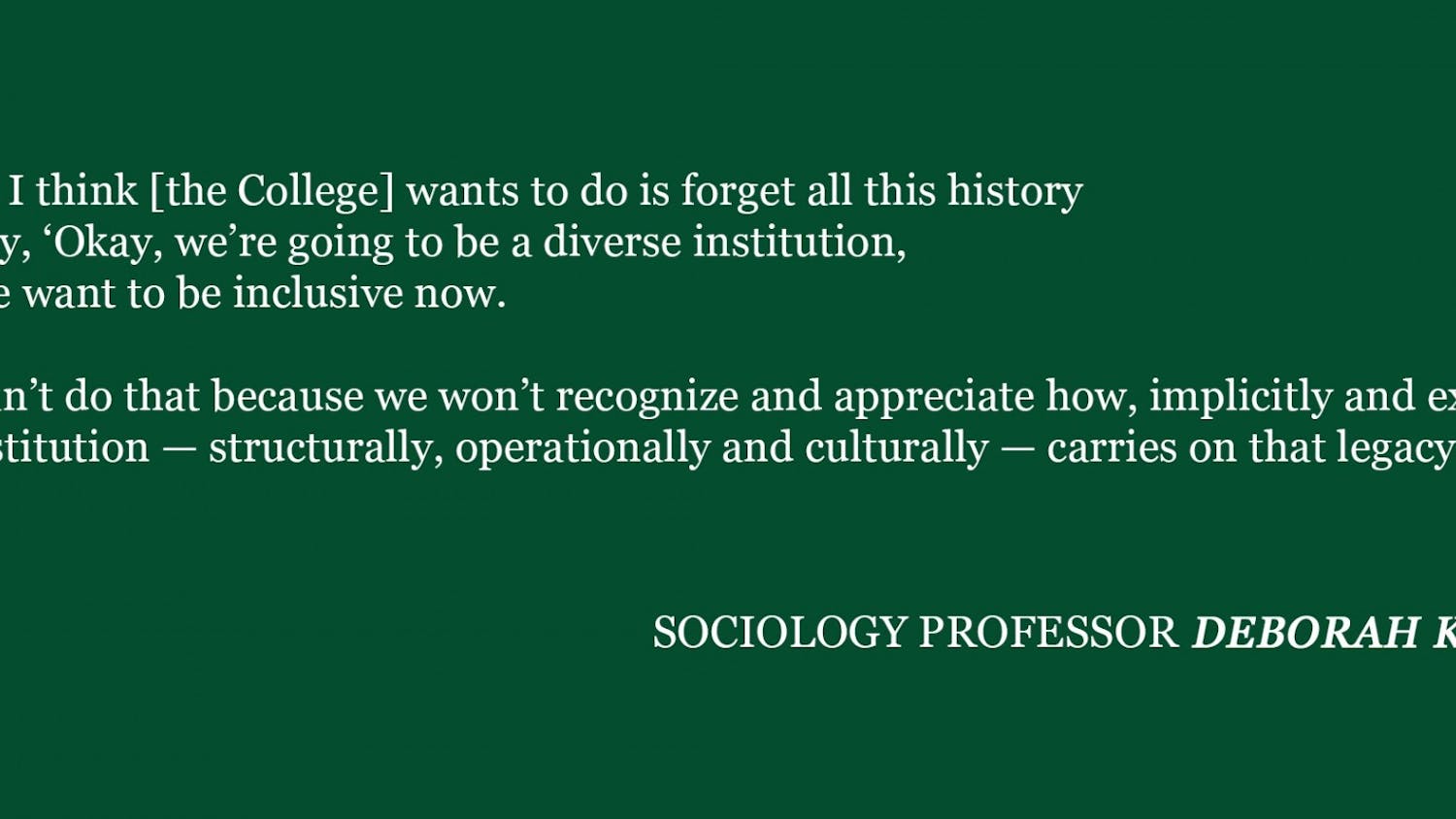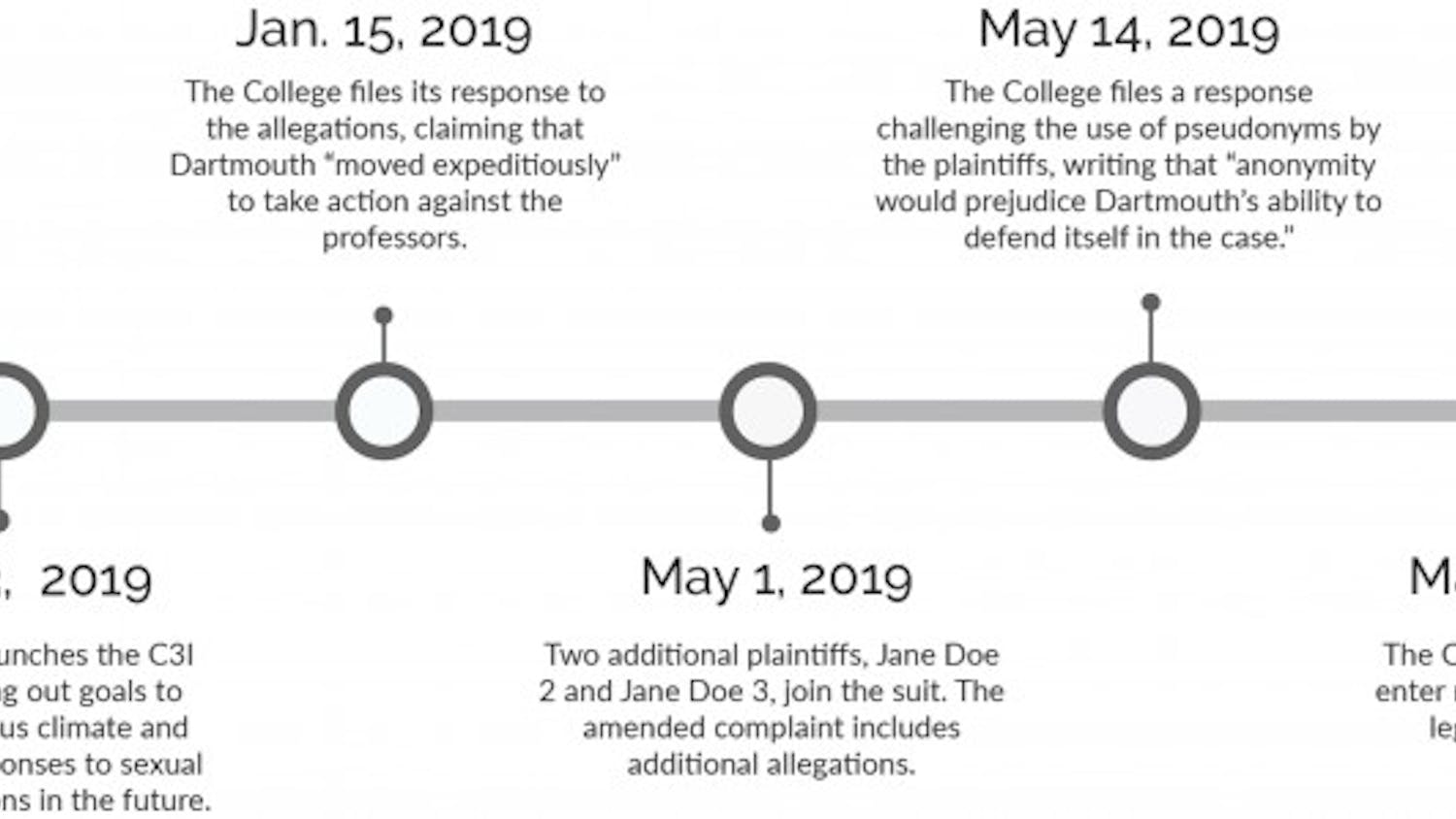Joining other institutions across the U.S. facing unwanted online intrusions into meetings held on Zoom, the College experienced its first reported “Zoombombing” incident on Monday at a public event organized by the Nelson A. Rockefeller Center for Public Policy.
The incident occured 30 minutes into a public panel on career development, the second of several scheduled events this month that invited recent Dartmouth graduates to talk about their emerging careers in public service. Since the incident, the College has launched an investigation into the incident to identify the intruder, according to Rockefeller Center director Jason Barabas.
Assistant director for co-curricular programs Bob Coates, who was a host during the event, said that the “Zoombombing” started when an unidentified number of people impersonated other attendees and started posting racist and misogynistic comments in the meeting chatroom.
“We were all caught off guard as it was happening,” Coates said.
Around 35 people were attending the panel at the time of the incident, according to Coates. He said that he and the other administrators attempted to expel the intruder by restarting the meeting but could not because of the intruder or intruders’ use of several other attendees’ names as aliases. The event was discontinued after the Zoombombers unmuted themselves and began talking over the meeting.
Katelyn Walker ’14, an associate general counsel for the U.S. House of Representatives Education and Labor Committee, was one of the panelists at the event. She said the intruder started posting “just generally offensive and hateful speech,” possibly directed towards her as a Black woman and toward the other female panelist.
Walker added that the disturbing comments appeared under the name of an attendee who had previously posted a reasonable question. The impersonated person then denounced the message, and the intruder switched to impersonating a different account.
“It totally devolved from there,” Walker said.
The Rockefeller Center has since posted a message to the Dartmouth community on its website explaining what happened and linking readers to statements on diversity and inclusion.
Immediately after the incident, Barabas said he reached out to Safety and Security and the Title IX office to start an investigation. At the request of Safety and Security, senior director of information security Sean McNamara said his office is conducting an investigation into the Zoombombers to try to determine their identities by reviewing the meeting log.
McNamara said the security breach was due to the open nature of the panel. He said that the Zoombombers were able to hide their identities because the meeting log-in only required attendees without a preexisting Dartmouth Zoom account to provide their names, without any kind of verification process. While this allowed people to join with ease, it also left the meeting vulnerable to anonymous attack.
“Generally I advise people not to set up a [public meeting] without essentially requiring that people authenticate for this exact reason — that if it was authenticated we would know immediately who it was,” he said.
He said he has already submitted a request to Zoom to release more information about the identities of the people responsible for the attack, and is waiting on a response. He said that information from the company could lead him to the IP addresses of the perpetrators, which might help in finding out their identities.
Safety and Security director Keysi Montas declined to comment on the department’s ongoing investigation.
Barabas said that the Rockefeller Center made a conscious decision to keep its public online events open with a public chat room to try to preserve the atmosphere of a live discussion.
“As a public event, we were trying to recreate the open access of the live event,” he said. “We wanted to have a feel that was more interactive.”
He said the Rockefeller Center would now be changing its policies after the incident, moving to a much more restrictive “webinar” setting on Zoom. Public events and discussions will now be held without the ability for attendees to use audio or video, and questions for the speakers must now be submitted in advance to a moderator who will read them during a Q&A session.
“We thought that we were relatively low risk in light of what we do,” Coates said. “We were trusting that people would not be so despicable, quite frankly, but they obviously were.”
Coates said that a finished discussion with the panelists was being compiled on Thursday and would be spliced together with the first part of the live session.




